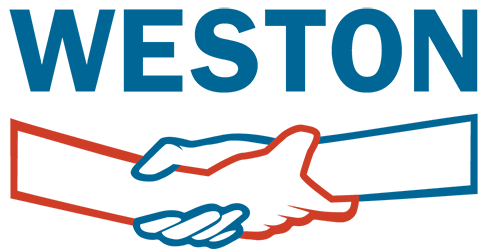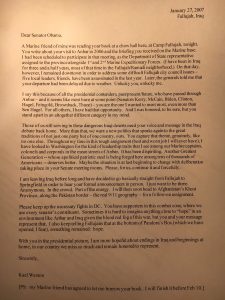
Why I Am a Democrat
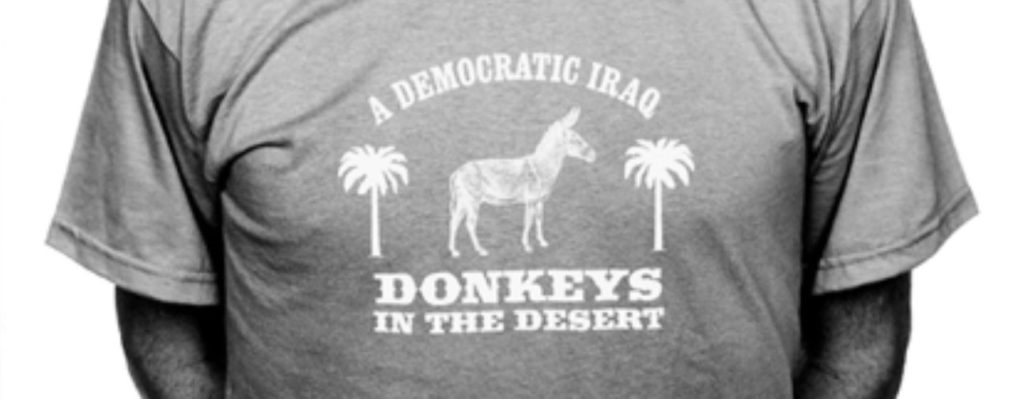
I’m a Democrat for many reasons, but two stand out.
Family Tradition
My ancestors, poor immigrant farmers and pioneers, came to the U.S. and then onward and westward to Utah with not a lot of money but high hopes. Dreams. They survived through the Great Depression because FDR’s Democratic Party cared enough to help them — like millions of other families — persevere and get back on their feet. My Dad’s side, the Westons, worked southern Utah’s railroads and plowed its sagebrush-covered land. The other side, my Mom’s, became small business owners in rural Utah, selling couches, carpet, and linoleum at two storefronts along Milford’s and Beaver’s Main Streets — not far from Topaz, the World War II Japanese-American incarceration camp, outside Delta, Utah. An uncle went to basic training in the U.S. Army right out of high school and then to Vietnam, twice, almost being killed in the country’s jungles by shrapnel and resulting sucking chest wound. He returned to rural Utah to serve across three decades as a popular Democratic county commissioner.
People First
Democrats have long put the public interest first, the common person. We helped ensure the elderly were not abandoned (Social Security) and that public health and safety became a national priority. Fair wages and worker protections have long been party priorities. Protecting the environment has not been insincere talk among Democrats but realized in legislation helping guarantee cleaner air and safer drinking water. Democratic President John F. Kennedy set an aspirational national goal that extended all the way to the moon — and we got there, not because it was easy, but because it was hard.
JFK’s blunt and bold challenge remains essential: all of us should be asking what we can do for our country. And then do it. President Obama showed what an ethical and principled White House could look like. Let’s remember as much and continue to seek high ethical conduct in the highest office of our land in 2024 and all the elections that follow.
While I had not run as a Democrat until my Congressional campaign in 2020 (my first four successful elections were nonpartisan … in junior high and high school), my Democratic Party involvement started in, of all places, a war zone. In 2003, I went to Iraq, which was an unnecessary war I opposed. While working for the U.S. State Department, I believed I might be able to help reduce violence and the risks to Iraqi civilians and U.S. troops, too many of whom ended up dead or wounded. Iraqi friends. Afghan friends. Marine friends. A red human tally: Abbas, Hamza, Najm, Kamal, Khudairi, Sami, Ibraheem, Qadir, Fassal, Jamal, Ryan, Nick, Trevor, Rick, Bill, RCH, among so many, many others.
While serving in Baghdad that year, I founded “Donkeys in the Desert” — the Iraq chapter of Democrats Abroad. And in summer 2004, I attended the Democratic National Convention in Boston, flying directly there from Fallujah while on leave. At that convention, a certain and mostly unknown senatorial candidate introduced himself: Barack Obama.
Barack Obama’s words to the 2004 convention still ring true:
“Well, I say to them tonight, there’s not a liberal America and a conservative America; there’s the United States of America.
“There’s not a black America and white America and Latino America and Asian America; there’s the United States of America.
“The pundits, the pundits like to slice and dice our country into red states and blue States: red states for Republicans, blue States for Democrats. But I’ve got news for them, too. We worship an awesome God in the blue states, and we don’t like federal agents poking around our libraries in the red states.
“We coach little league in the blue states and, yes, we’ve got some gay friends in the red states.
“There are patriots who opposed the war in Iraq, and there are patriots who supported the war in Iraq.
“We are one people, all of us pledging allegiance to the stars and stripes, all of us defending the United States of America.”
Fast forward three years: then-Senator Obama was announcing his bid for the White House.
Leaving Fallujah again, I made it to Springfield, Illinois, just in time to hear him speak in front of the Old State Capitol on a frigid February 10, 2007 — the day his presidential run became official. Later that same day, I met Senator Obama during a small gathering in the basement of the statehouse where Abraham Lincoln gave his 1858 “a house divided against itself cannot stand” speech.
Obama had heard about some guy who had flown all the way from Fallujah to hear his message. We talked about Iraq. I handed him a letter.
A year later, in 2008, the campaign asked me to introduce Michelle Obama at the Salt Palace. It was an honor.
At the 2008 Democratic Convention in Denver, I was a guest of Michelle Obama. Below are a few of my snapshots from that event.
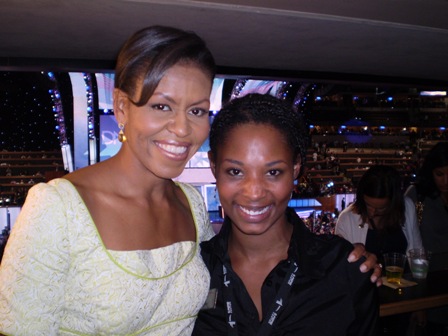
Michelle Obama and Nisha, who worked on Barack Obama’s campaign.
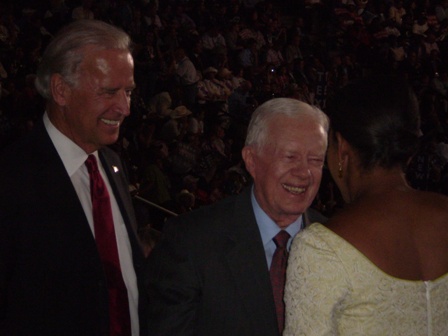
Then Senator Joe Biden, President Jimmy Carter, and Michelle Obama.
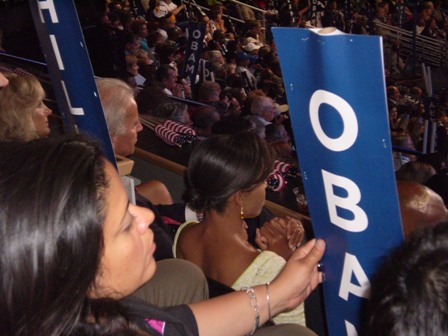
Michelle Obama at Denver Convention 2008.
Most Urgent of All
Now, perhaps the most urgent reason of all that I’m a Democrat?
Because the Democratic Party is standing up for democracy and against authoritarianism.
I also believe the future of Democrats across America — and ensuring stability in our country — will be in where we choose to make our case, in person and repeatedly: in rural America, in all of Utah’s 29 counties, not just some.
In 2022, our American House is divided. Each of us has a role in keeping it standing.
In both wars, I used to tell Iraqi and Afghan tribal and religious leaders:
“I keep the promises I make, which is why I don’t make very many.”
In this election, I promise voters that I will always put the people’s interests first.
We can be better neighbors — wherever we live, whether in rural, suburban, or urban neighborhoods. We can listen better. We can reach out.
We can put country first.
We can begin to bridge the dangerous divides that define our current politics and threaten our shared future.
We can be — by working hard and together — Utahns living within an American House that is united.
